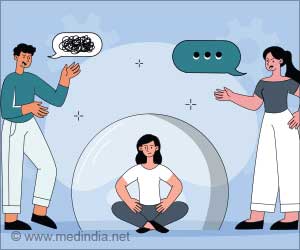Explore the global movement towards recognizing mental health as a universal right. Together, we can make a difference.
- Mental well-being is a fundamental human right, requiring protection, access to quality care, and community involvement
- Tailored mental health support empowers individuals to face challenges, build connections, and thrive
- Collective action is needed to eliminate biases, particularly for young people facing conditions like depression
To emphasize the importance of this individualized approach, we commemorate 'World Mental Health Day' on October 10 - a poignant reminder that mental well-being is as vital as physical health. It calls upon us to prioritize self-care and extend a helping hand to those in need.
World Mental Health Day: Theme
The theme for World Mental Health Day emphasizes two critical aspects: “Mental health is a universal human right.”Mental health is not a privilege but a fundamental human right, entailing protection from risks, access to quality care, and active participation in one's community. Astonishingly, 1 in 8 individuals worldwide grapples with mental health conditions, affecting not only their mental well-being but also their physical health, social connections, and livelihoods.
It is imperative to underscore that mental health should never be an excuse for infringing upon someone's human rights. Nonetheless, individuals with mental health conditions encounter widespread discrimination and exclusion, underscoring the urgent need for collective action.
History of World Mental Health Day
World Mental Health Day was first observed on October 10, 1992, at the initiative of the World Federation for Mental Health (WFMH), a global mental health organization with members and contacts in more than 150 countries (1✔ ✔Trusted SourceWorld Mental Health Day, 10 October 2023
Go to source).
The aim of this day is to raise awareness about mental health issues and to mobilize efforts in support of mental health. Each year, World Mental Health Day focuses on a specific theme, highlighting different aspects of mental health that require attention and understanding. It has become a crucial platform for advocacy, education, and the reduction of stigma surrounding mental health.
World Mental Health Day: Significance
“At the cornerstone of well-being lies the right to quality care.”Strong mental health empowers individuals to confront challenges, forge connections, and ultimately thrive. As a universal human right, every person deserves access to high-quality, tailored mental health care throughout their lifespan.
For young people, mental health conditions pose a particularly significant threat to their well-being. Depression, in particular, emerges as a leading cause of adolescent illness and disability. Every individual has the right to live free from stigma and discrimination. It is imperative that we, as a collective, work tirelessly to eradicate biases surrounding mental health.
Mark Your Contribution this World Mental Health Day
- Spread Awareness: Share informative content on social media platforms, host discussions, or organize events to educate others about mental health issues and solutions. Use Hashtag #WorldMentalHealthDay
- Donate to Mental Health Organizations: Contribute to reputable mental health organizations that work towards supporting individuals dealing with mental health challenges
- Participate in Workshops and Webinars: Attend or organize workshops and webinars that focus on mental health, providing tools and resources for those in need
- Support Friends and Family: Offer a listening ear and encourage open conversations about mental health. Provide emotional support and help them seek professional help if needed
- Advocate for Policy Change: Advocate for policies that improve mental health services and reduce the stigma surrounding mental health conditions in your community or country
- Volunteer: Volunteer with organizations that work towards mental health awareness and support. Your time and efforts can make a significant impact
- Self-Care: Take care of your own mental health. Practice self-care and seek help if you're struggling. A healthy individual contributes to a healthier community
To conclude, essential services and support are crucial for individuals to live independently and become integrated members of their communities. Quality community mental health services play a pivotal role in the well-being and fulfillment of individuals. This priority, particularly in early life, yields enduring benefits for young people and adults alike.
Recognizing mental health as a universal human right empowers individuals to advocate not only for themselves but also for others. This advocacy shapes policies, laws, and services with invaluable expertise.
On this World Mental Health Day, let us not only understand our mental health rights but also stand up for what is right. Together, we can ensure that mental health is universally recognized and respected as a fundamental human right for every individual, regardless of where they may be.
Reference:
- World Mental Health Day, 10 October 2023 - (https://www.who.int/campaigns/world-mental-health-day/2023)
Source-Medindia
















